🔬 Social Media / Mental Health / Anthropology / Evolutionary
Psychiatry / Cognitive Science
🎙️ Co-parenting the @cognitations.bsky.social
podcast

Along with @orbenamy.bsky.social, Nik & @jaeggiadrian.bsky.social, @realadamhunt.bsky.social & I revisit an old theoretical question using concepts from evo psychiatry and anthro:
Why do mixed associations exist b/w social media & mental health?
A 🧵
Along with @orbenamy.bsky.social, Nik & @jaeggiadrian.bsky.social, @realadamhunt.bsky.social & I revisit an old theoretical question using concepts from evo psychiatry and anthro:
Why do mixed associations exist b/w social media & mental health?
A 🧵

Along with @orbenamy.bsky.social, Nik & @jaeggiadrian.bsky.social, @realadamhunt.bsky.social & I revisit an old theoretical question using concepts from evo psychiatry and anthro:
Why do mixed associations exist b/w social media & mental health?
A 🧵

Along with @orbenamy.bsky.social, Nik & @jaeggiadrian.bsky.social, @realadamhunt.bsky.social & I revisit an old theoretical question using concepts from evo psychiatry and anthro:
Why do mixed associations exist b/w social media & mental health?
A 🧵
Cognitations has been awarded a Workshop Event Grant by @ehbea.bsky.social
This amazing grant will help us record new episodes with leading international experts in evolution, anthro & cog sci. Stay tuned in to hear from @manvir.bsky.social, @dansperber.bsky.social & many more!!!
Cognitations has been awarded a Workshop Event Grant by @ehbea.bsky.social
This amazing grant will help us record new episodes with leading international experts in evolution, anthro & cog sci. Stay tuned in to hear from @manvir.bsky.social, @dansperber.bsky.social & many more!!!

Some people are at greater risk of experiencing negative mental health outcomes of social media use than others, but why?
🧵
We examined whether individual differences in cognitive processes shape risk and resilience to mental health effects on social media: osf.io/preprints/ps...
Some people are at greater risk of experiencing negative mental health outcomes of social media use than others, but why?
🧵
We examined whether individual differences in cognitive processes shape risk and resilience to mental health effects on social media: osf.io/preprints/ps...
Prolonged Isolation is associated with an increased behavioural sensitivity to ‘Likes’ on social media.
🧵
Social media rewards are inherently social—but does posting change during social isolation, when in-person social rewards are limited?
It turns out, yes!
Prolonged Isolation is associated with an increased behavioural sensitivity to ‘Likes’ on social media.
🧵
Social media rewards are inherently social—but does posting change during social isolation, when in-person social rewards are limited?
It turns out, yes!
3 to work with me on children as agents of cultural evolution
2 to work with @drboothroyd.bsky.social on examining school-based body image interventions.
Please share and apply!
www.durham.ac.uk/departments/...
3 to work with me on children as agents of cultural evolution
2 to work with @drboothroyd.bsky.social on examining school-based body image interventions.
Please share and apply!
www.durham.ac.uk/departments/...
But what if there’s a better alternative story? A new preprint strongly suggests that evolutionary psychiatry might offer one—without making us strangers to ourselves.
“Our findings represent the most robust evidence to date that evolutionary psychiatry offers normalising causal stories with various positive effects, in this case by casting anxiety as a calibrated defence system that can overshoot in contemporary contexts."

But what if there’s a better alternative story? A new preprint strongly suggests that evolutionary psychiatry might offer one—without making us strangers to ourselves.
Seems like a very timely paper for behavioural scientists using online samples: osf.io/preprints/so... ;
We really need more papers on this issue

Seems like a very timely paper for behavioural scientists using online samples: osf.io/preprints/so... ;
We really need more papers on this issue

Most of us struggle w/ work-life balance. Long before the existence of long commutes and busy calendars, our ancestors lived as hunter-gatherers (HGs). Do HGs have more free time? @adigitaltanay.bsky.social discusses this & much more with Mark Dyble
tinyurl.com/y6hd8ur5
(1/2)
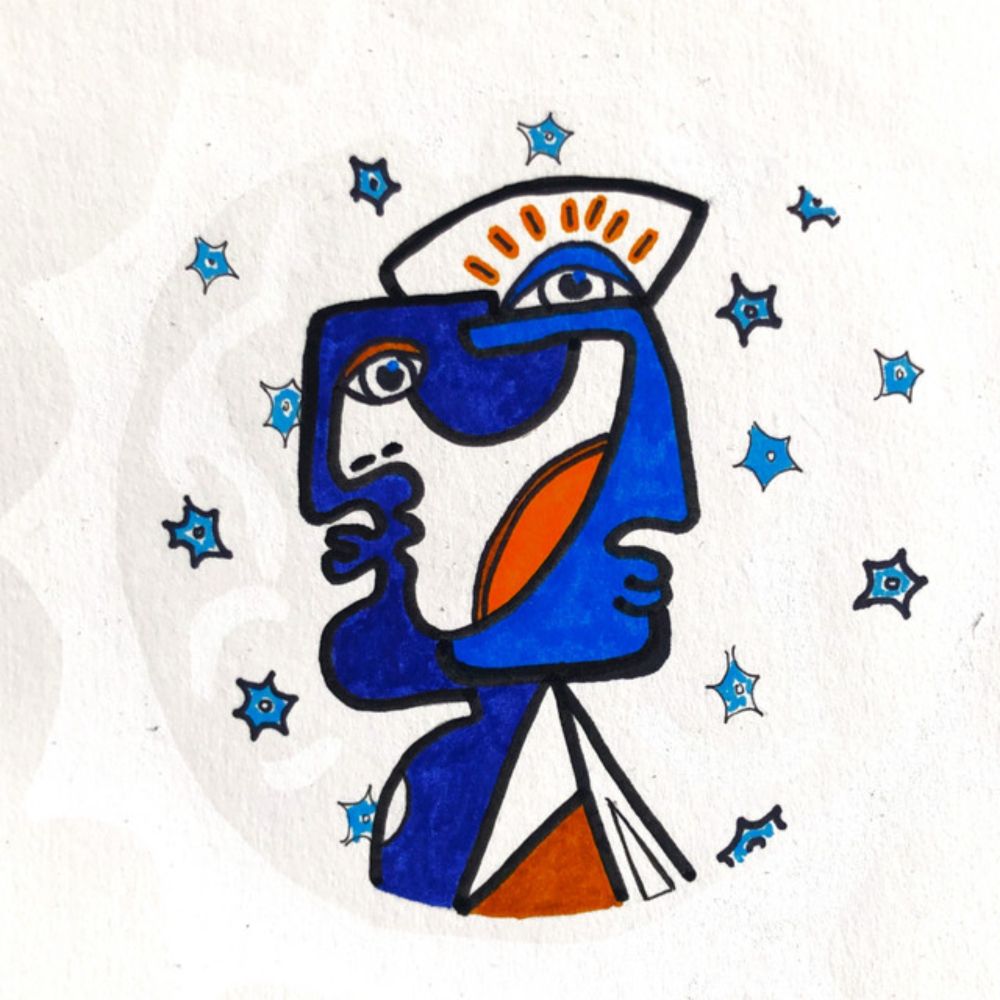
Most of us struggle w/ work-life balance. Long before the existence of long commutes and busy calendars, our ancestors lived as hunter-gatherers (HGs). Do HGs have more free time? @adigitaltanay.bsky.social discusses this & much more with Mark Dyble
tinyurl.com/y6hd8ur5
(1/2)
This method might have interesting implications for conducting quantitative ethnography in other disciplines. Do check her work out!!
𝐘𝐨𝐮𝐭𝐡 𝐏𝐞𝐫𝐬𝐩𝐞𝐜𝐭𝐢𝐯𝐞𝐬 𝐨𝐧 𝐒𝐨𝐜𝐢𝐚𝐥 𝐌𝐞𝐝𝐢𝐚 𝐇𝐚𝐫𝐦𝐬: 𝐀 𝐋𝐚𝐫𝐠𝐞-𝐒𝐜𝐚𝐥𝐞 𝐌𝐢𝐜𝐫𝐨-𝐍𝐚𝐫𝐫𝐚𝐭𝐢𝐯𝐞 𝐒𝐭𝐮𝐝𝐲
osf.io/preprints/ps...
🧵
Using a novel micro-narrative method, we collected ~ 900 first-person accounts of social media harms from young people across the UK and US.
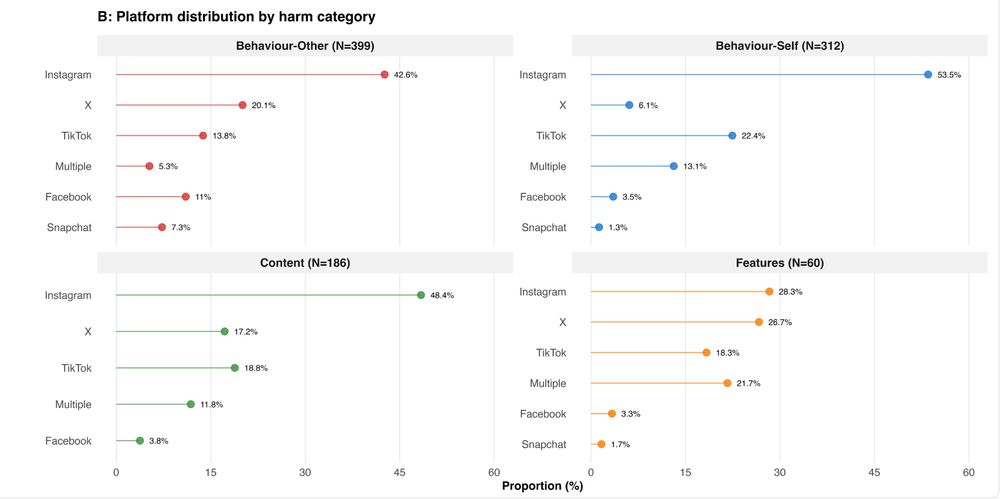
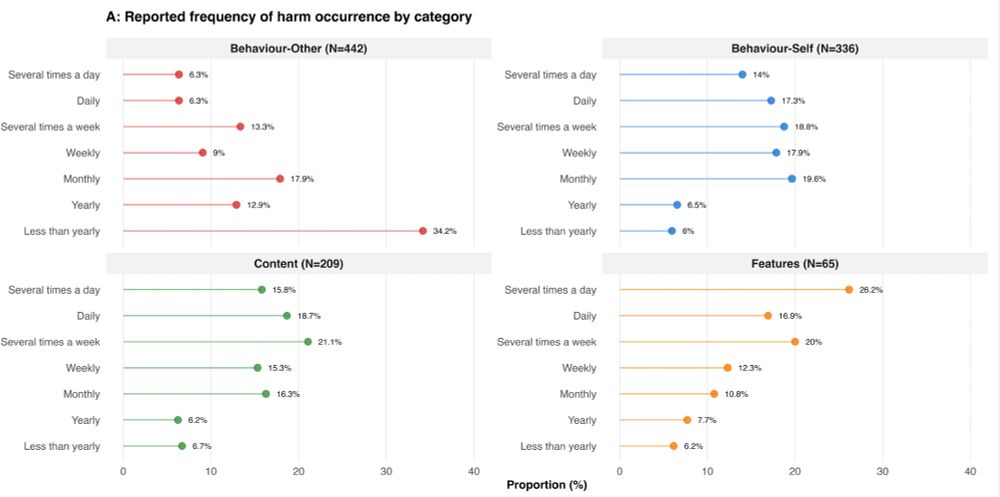
This method might have interesting implications for conducting quantitative ethnography in other disciplines. Do check her work out!!
Two people can hear different things when listening to the same sound (see 🧵): how does our auditory system really work? Cindy & @mariusmercier.bsky.social discuss this and much more with Daniel Pressnitzer
shorturl.at/w6Y0w
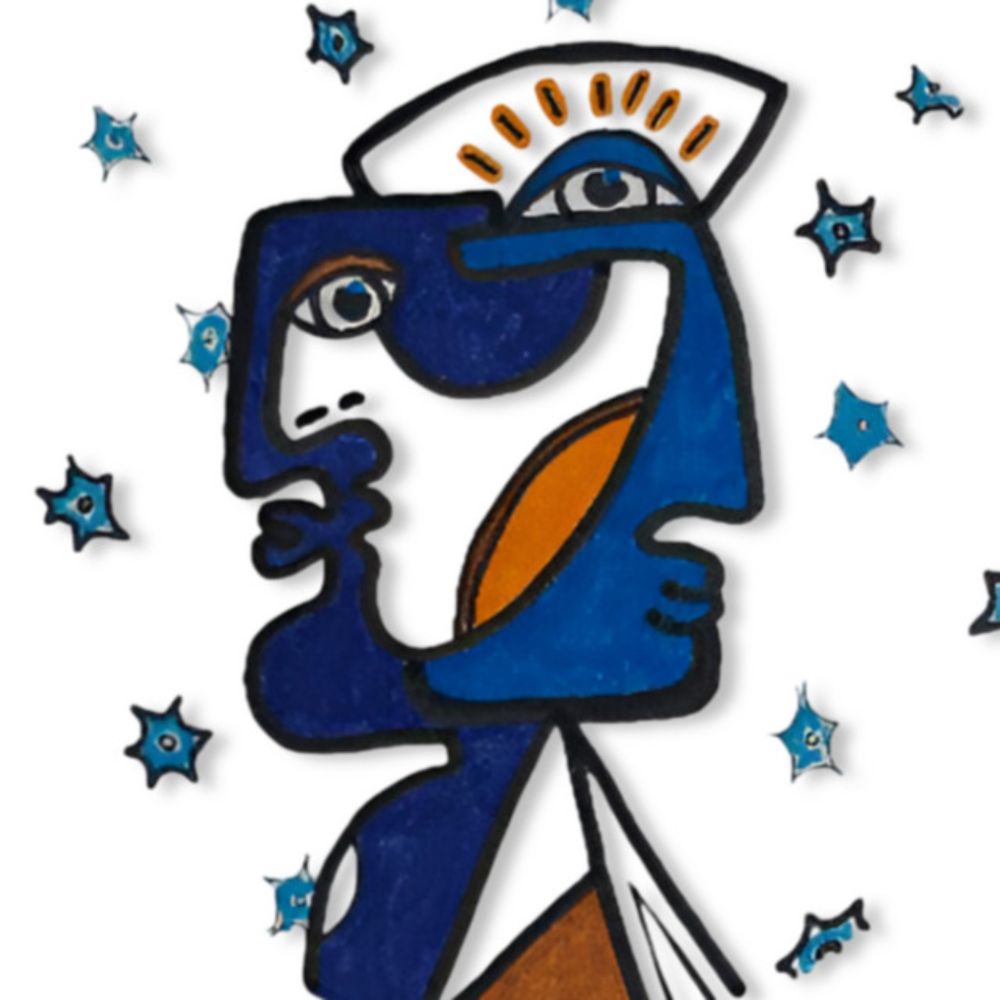
Two people can hear different things when listening to the same sound (see 🧵): how does our auditory system really work? Cindy & @mariusmercier.bsky.social discuss this and much more with Daniel Pressnitzer
shorturl.at/w6Y0w
**Old Strategies, New Environments: Reinforcement Learning on Social Media**
In this Review, we argue that the computational framework of Reinforcement Learning can help us understand social media behaviour:
www.sciencedirect.com/science/arti...
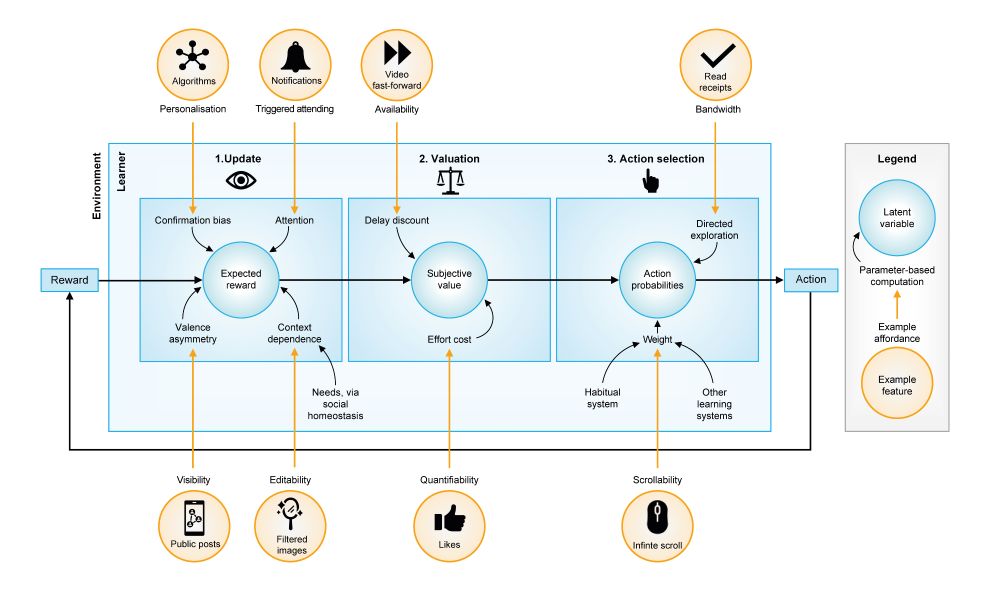
**Old Strategies, New Environments: Reinforcement Learning on Social Media**
In this Review, we argue that the computational framework of Reinforcement Learning can help us understand social media behaviour:
www.sciencedirect.com/science/arti...
@eikofried.bsky.social
@awaisaftab.bsky.social
@eikofried.bsky.social
@awaisaftab.bsky.social
We propose a new framework for designing 𝘀𝗼𝗰𝗶𝗮𝗹 𝗺𝗲𝗱𝗶𝗮 𝗶𝗻𝘁𝗲𝗿𝘃𝗲𝗻𝘁𝗶𝗼𝗻𝘀 that support well-being, grounded in self-determination theory 🧵
www.nature.com/articles/s41...
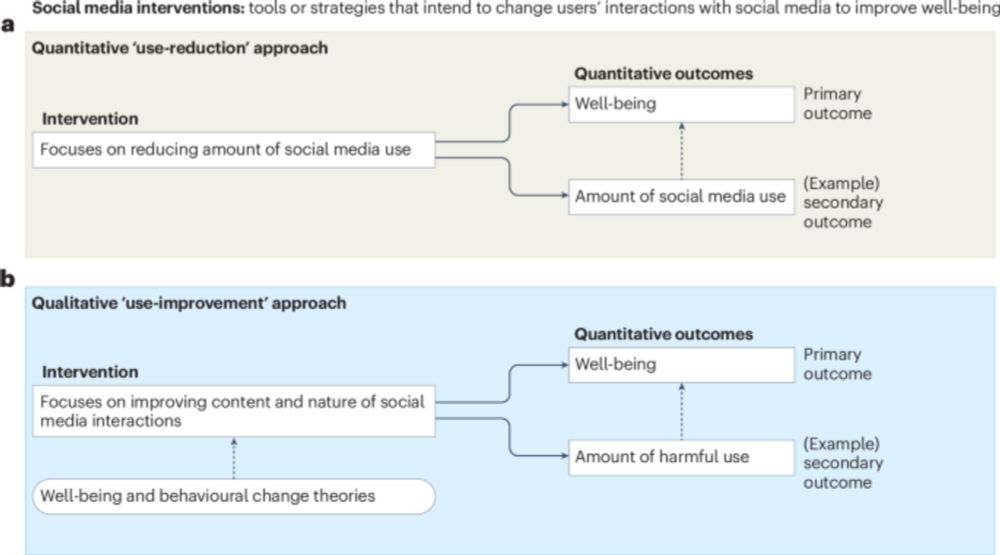
We propose a new framework for designing 𝘀𝗼𝗰𝗶𝗮𝗹 𝗺𝗲𝗱𝗶𝗮 𝗶𝗻𝘁𝗲𝗿𝘃𝗲𝗻𝘁𝗶𝗼𝗻𝘀 that support well-being, grounded in self-determination theory 🧵
www.nature.com/articles/s41...
We analyse nationally representative UK data from 3,340 adolescents (aged 11–19) to examine how social media use differs between those with and without mental health conditions. 🧵
www.nature.com/articles/s41...
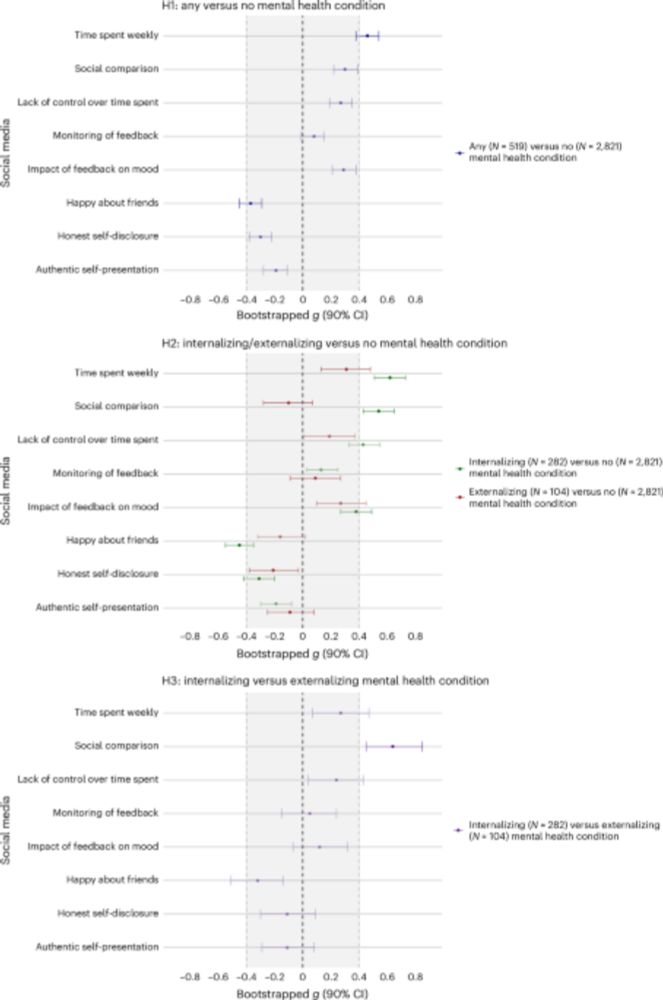
We analyse nationally representative UK data from 3,340 adolescents (aged 11–19) to examine how social media use differs between those with and without mental health conditions. 🧵
www.nature.com/articles/s41...
Source: lareviewofbooks.org/article/scie...

Source: lareviewofbooks.org/article/scie...
How can methods from cognitive science provide new ways of investigating social media’s mental health effects? Does it offer new policy insights? @adigitaltanay.bsky.social discusses this and much more with @lukasgunschera.bsky.social & @georgiaturner.bsky.social
tinyurl.com/4ayf4x5s
🧵
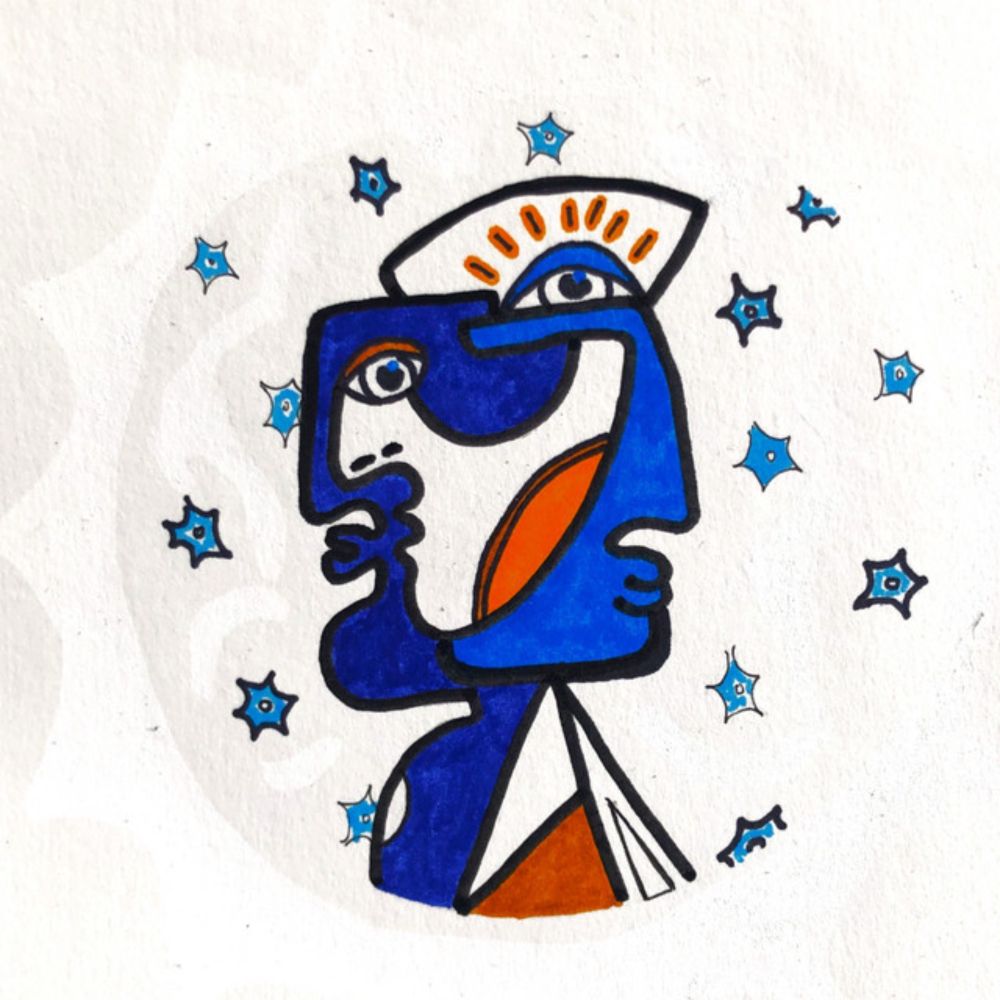
How can methods from cognitive science provide new ways of investigating social media’s mental health effects? Does it offer new policy insights? @adigitaltanay.bsky.social discusses this and much more with @lukasgunschera.bsky.social & @georgiaturner.bsky.social
tinyurl.com/4ayf4x5s
🧵
www.frontiersin.org/journals/psy...

www.frontiersin.org/journals/psy...
This riddle is thousands of years old, but why does it stick with us?
In our new paper, we argue that the feeling of insight might explain the lasting success of some cultural products: tinyurl.com/4j756h9a
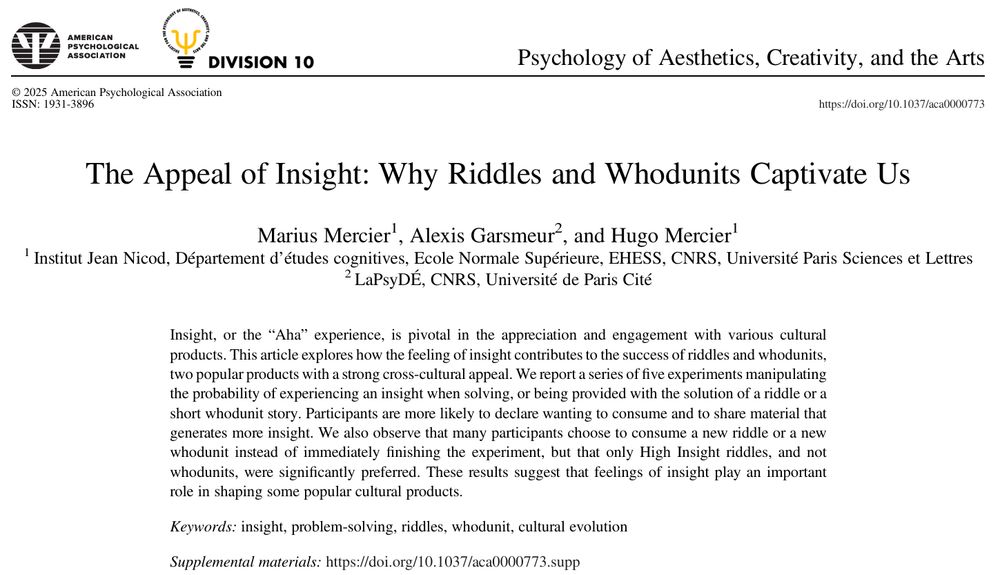
This riddle is thousands of years old, but why does it stick with us?
In our new paper, we argue that the feeling of insight might explain the lasting success of some cultural products: tinyurl.com/4j756h9a
podcasts.apple.com/gb/podcast/c...
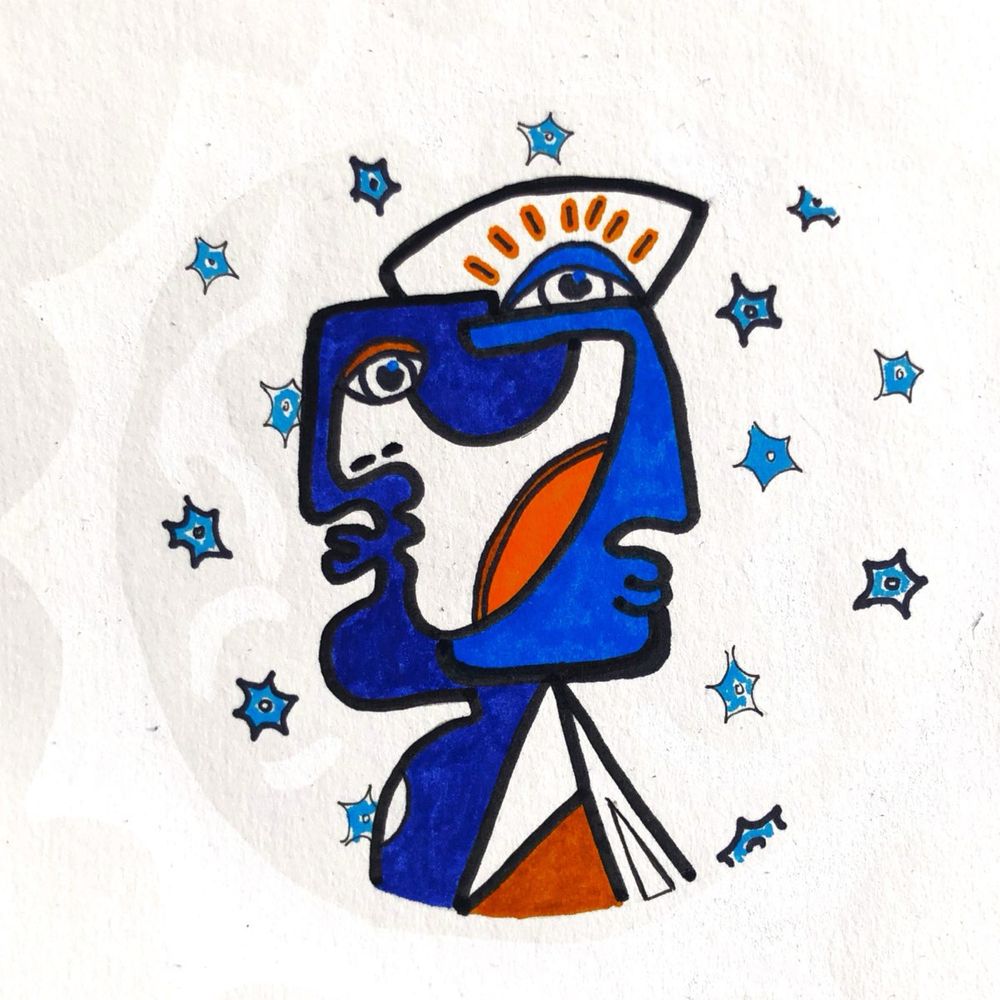
podcasts.apple.com/gb/podcast/c...

We evaluate science's ability to address technological harms, and offer recommendations for what could be done to improve on the status quo: www.science.org/doi/10.1126/...

We evaluate science's ability to address technological harms, and offer recommendations for what could be done to improve on the status quo: www.science.org/doi/10.1126/...
He will feature some other team members next, so do give the podcast a follow 🤳

He will feature some other team members next, so do give the podcast a follow 🤳

